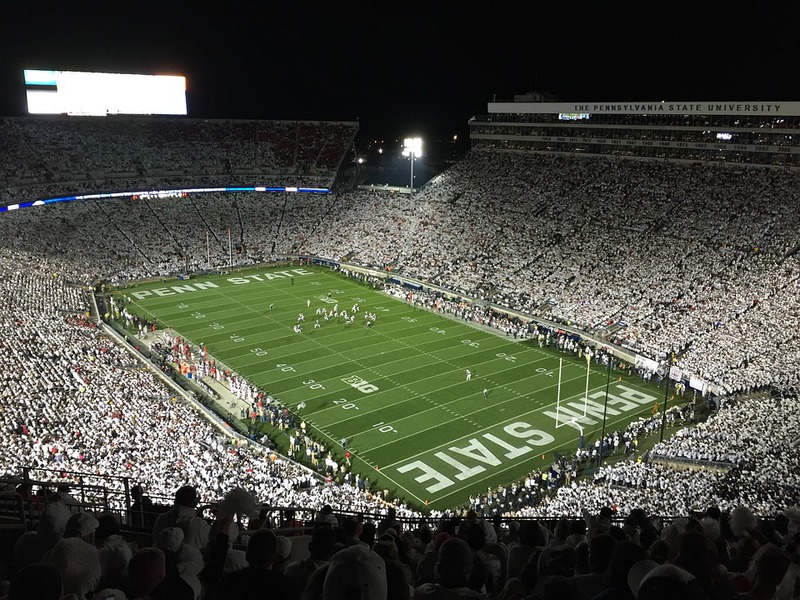






Penn State Eyeing Cut Of Casino Industry's Sports Betting RevenueSchool Wants Two-Year Ban On Betting On State's College Teams |
|
|

Add Pennsylvania State University to the list of sports-related groups seeking a cut of Pennsylvania sports betting revenue, despite a large chunk of that revenue being earmarked for property tax relief to Pennsylvania residents.
According to a June 15 letter from the university to the Pennsylvania Gaming Control Board, Penn State is seeking a two-year prohibition on wagering on “sporting events involving varsity sports teams from colleges and universities domiciled in Pennsylvania.”
Penn State wants the time to adapt to the law change and also to study whether or not it should “perhaps” receive the controversial “integrity fee” to “provide funding for the additional educational and compliance costs that are expected to be incurred.”
Pennsylvania lawmakers passed a gambling industry reform package last fall that included the legalization of sports books, pending change to federal law. In mid-May, the U.S. Supreme Court ruled that all 50 states can legalize and tax sports betting. Pennsylvania gaming regulators are now working on crafting the specific rules pertaining to the activity.
Pennsylvania’s elected officials did not include an integrity fee in the legislation.
The U.S. casino industry strongly opposes the integrity fee, which has also been proposed by the pro sports leagues in multiple states that are tackling the sports betting issue. Under Pennsylvania law, sports betting revenue will be taxed at 36 percent, with the casinos also paying a one-time $10 million fee for a sports wagering certificate. Sports betting as a business also has tight margins. In Nevada’s mature sports betting market, the casinos retained just 5.1 percent of $4.8 billion worth of wagers in 2017 ($248.7 million in sports betting revenue).
Penn State, which has an endowment of more than $3.5 billion, could slow the state’s full-fledged entry into the legal sports betting industry, or even derail entry altogether.
According to iDEA, North America’s first online gaming trade association, the integrity fee amounts to “little more than a royalty” for the schools and leagues. iDEA also penned a letter to Pennsylvania gaming regulators, explaining that the fee “will simply decrease the funds available to pay taxes.”
“Charging an ‘integrity fee’ is actually counterproductive to integrity; by making it more difficult for legal sports books to operate, such a fee encourages illegal gambling that is far more open to corruption,” the group wrote in its June 15 letter.
Additionally, an integrity fee could force Pennsylvania casinos to offer unattractive sports betting lines in order to maintain a four to five percent profit margin, according to iDEA.
Furthermore, “lengthy court battles” could stymie Pennsylvania’s sports betting market if the casinos are required to hand over money to the schools and leagues, according to iDEA. Court challenges to the integrity fee would also dip into state coffers.
According to Pennsylvania law, limited forms of gambling are allowed in order to “provide a significant source of new revenue to the Commonwealth to support property tax relief, wage tax reduction, economic development opportunities and other similar initiatives.”
The nationwide market for sports betting is expected to grow to as much as $6 billion within the next five years, assuming no fees prevent the industry from growing.
In addition to Penn State’s request, the Pittsburgh Pirates are seeking a cut of sports betting revenue in order to pay for the upkeep at PNC Park.
